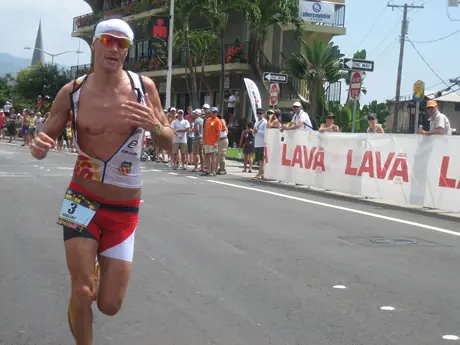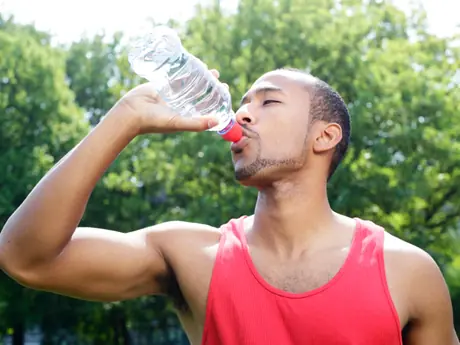
In 2011, Swiss researchers measured the body weight and body fat percentage of 184 age-group triathletes before they participated in an Ironman event. These subjects were also asked various questions about their triathlon training.
After the race the researchers compared the athletes' body measurements against their Ironman swim, bike and run times, as well as their overall finish times. Body weight was found to have a statistically moderate effect on total race time, with lighter athletes tending to reach the finish line quicker. Body fat percentage had a large effect on total race time and a moderate effect (bordering on large) on swim, bike and runs splits.
Interestingly, extra body weight and body fat affected running performance more negatively than swimming or cycling performance in these subjects. This is not too surprising when you consider that gravity affects running more than it affects swimming and cycling, which is why elite runners are typically smaller than elite swimmers and cyclists.
In a nutshell, this study demonstrated that it pays to be lean and light in triathlon.
More: 5 Ways to Slim Down and Speed Up for Your Next Race
While some athletes are naturally skinnier than others, each athlete has an ideal racing weight that is attained when he or she has gotten rid of as much excess body fat as possible through healthy nutrition and proper training.
Many triathletes modify their diet for the purpose of getting leaner. For example, an athlete trying to take her performance to the next level might eliminate high-calorie coffee drinks from her diet and eat larger vegetable portions in her dinners.
More: Nutrition Overhaul for a Triathlon Newbie
Relatively few triathletes, however, modify their training to get leaner. While it is understood that consistent, intensive training is likely to yield fat loss, most triathletes train to boost their fitness and performance and accept fat loss as a beneficial side effect. In other words, they train according to the principle of "form follows function."
Is this the right way to go or should you, as a triathlete, invert this formula (to "function follows form") and train specifically to shed fat in order to improve your performance?
The short answer to this question is "no." As important as being lean and light is to triathlon performance, it's only one factor among many that affect performance.
- 1
- of
- 2
About the Author








Discuss This Article